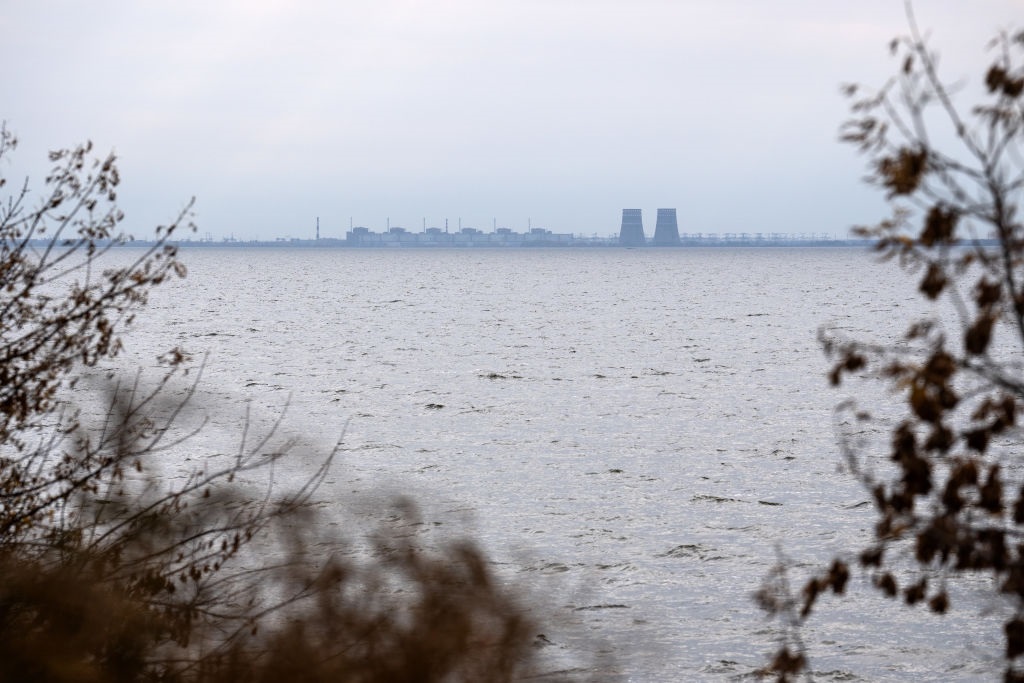
Ukraine's ambassador to South Africa, Liubov Abravitova writes that with the Russian's occupying the the Zaporizhya nuclear power plant, the world should grasp the profound implications for a nuclear disaster in Ukraine.
I was one of the lucky ones; when the Chernobyl catastrophe happened, I wasn't in Ukraine. My dad was in the military station abroad at that time, which, most likely, saved my family from a lot of illnesses.
The Chernobyl Nuclear Power Plant accident, which occurred on 26 April 1986, is the most significant manufactured disaster of the 20th century. It involved two explosions at the fourth reactor, causing a massive fire and releasing a substantial amount of radioactive materials into the atmosphere.
The consequences of the accident were devastating, resulting in severe environmental contamination. The impact of the radiation extended beyond Ukraine, Belarus, and Russia, affecting several European countries such as Poland, Germany, Austria, Great Britain, Norway, Finland, Sweden, and Switzerland, among others. These countries witnessed the aftermath of the Chernobyl disaster. The area surrounding the plant, specifically Prypiat, remains uninhabitable to this day.
Accident concealed
Determining the exact number of victims is challenging, as numerous people did not succumb to radiation sickness immediately but developed cancer years later due to radiation exposure.
It is important to note that the Soviet authorities in Moscow deliberately concealed the accident, downplayed its dire consequences, and issued official orders to restrict the dissemination of information regarding nuclear plant explosions and the release of radiation. They even controlled outgoing correspondence and limited international communication.
The catastrophe only came to light when the Swedes detected elevated radiation levels within their territory and demanded explanations from the Soviet authorities.
Unfortunately, even today, we observe Russia continues to follow the footsteps of Soviet ideology, which disregarded the value of human life.
READ | Olexiy Haran: What is needed is for Russia to withdraw, not a 'de-escalation on both sides'
Russia occupied the largest nuclear power plant in Europe - the Zaporizhya nuclear power plant (NPP) on 4 March 2022, giving Russian company "Rosatom" full control over the nuclear plant.
In early May, International Atomic Energy Agency (IAEA) representatives confirmed that Russia is storing weaponry and explosives at the Zaporizhya nuclear power plant.
According to a statement issued by the State Nuclear Regulatory Inspectorate of Ukraine, "Representatives of the IAEA reported the fact that Russian occupants had located military equipment, weapons and explosives in the turbine room of Zaporizhzhya NPP Unit 4. This became known during the weekly meeting on communication between the IAEA Incident and Emergency Centre (IEC) and the SNRIU about the activities of the IAEA mission at the Zaporizhzhya NPP site, which was held on May 2, 2023."
Into the realm of a nuclear power plant explosion
The Russian invasion is once more bringing my country into the chilling realm of a nuclear power plant explosion possibility—a cataclysmic event that could unleash unimaginable devastation upon our planet, not just Ukraine, casting a shadow over generations to come.
Close your eyes for a moment and imagine a world forever altered. A place where vibrant cities are reduced to ghostly ruins, once teeming with life but now consumed by an eerie silence. Picture an environment poisoned by invisible forces, rendering vast stretches of land uninhabitable for centuries. Envision a future where the legacy of this catastrophe echoes through time, affecting not only human lives but the very fabric of nature itself.
READ | Niko Vorobyov: Now I know what it was like to be German in 1939
Despite the passage of nearly four decades, the Exclusion Zone remains a chilling testament to the lasting legacy of the Chernobyl disaster. The area's radioactivity levels still pose a significant threat to human health, rendering it inhospitable for long-term habitation. The land remains scarred, the wildlife affected, and the human population permanently displaced. It serves as a stark reminder of the delicate balance between humanity's quest for progress and the potential for irreversible destruction—a reminder that the consequences of our actions can reverberate for generations, shattering lives and transforming thriving communities into ghostly remnants of a world forever changed.
We know all of the above too well; we are still living through the devastation of the once beautiful and filled with life and laughter city of Chernobyl.
I don't want to induce irrational fear, but I do want the world to truly grasp the profound implications of a nuclear disaster in Ukraine and the harrowing consequences that reverberate far beyond the immediate blast radius.
One thing is for sure, Vladimir Putin's dream of world hunger would definitely be achievable.
- Liubov Abravitova is the Ukraine ambassador to South Africa
*Want to respond to the columnist? Send your letter or article to opinions@news24.com with your name and town or province. You are welcome to also send a profile picture. We encourage a diversity of voices and views in our readers' submissions and reserve the right not to publish any and all submissions received.
Disclaimer: News24 encourages freedom of speech and the expression of diverse views. The views of columnists published on News24 are therefore their own and do not necessarily represent the views of News24.




 Publications
Publications
 Partners
Partners


























